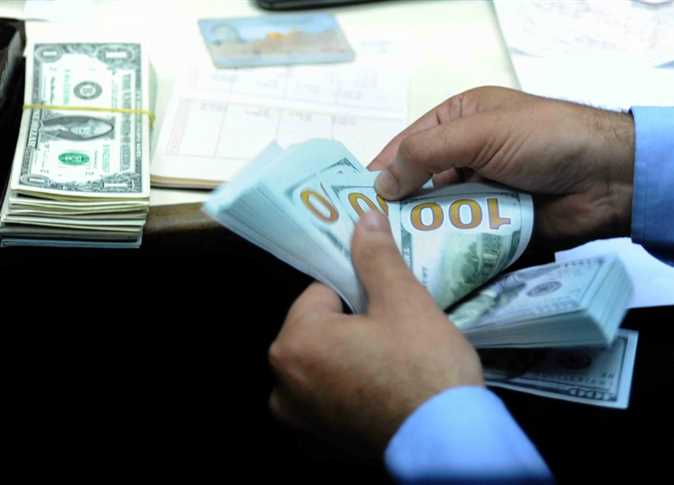Caught between a capitalist logic to encourage investments in a slowing economy, and a revolutionary reality that demands immediate attention to social justice, Samir Radwan’s interim Finance Ministry was not able to produce a tax system that serves either logic adequately, analysts say.
Finance Minister Radwan announced certain tax revisions earlier this week along with a budget that was not a true departure from those of years past. Each sector will contribute roughly the same percentage to overall tax revenue and most of the tax revisions are considered small and insignificant.
“Right now, the situation is unclear. Radwan is acting as an interim minister and knows he cannot really enact specific shifts in policy and so is making piecemeal offerings on all fronts,” said Ahmed Ghoneim, a professor of Economics at Cairo University.
However, any decisions made by this interim government with regards to taxes will have long-term implications due to the administrative changes that altering a tax code requires. The new proposals indicate a gradual return to progressive taxation since a progressive taxation law was scrapped in 1991. Taxes under that scrapped system went up to 40 percent for the highest income bracket.
On top of the 20 percent flat tax, the government would also impose an additional 5 percent on annual earnings that exceed LE10 million annually, whether for individuals or comapnies.
“A true progressive tax system would not deter investments and companies from working. My clients’ businesses are mainly affected by the state of the market, not taxes,” said Essam al-Sayyed, owner of al-Fath group, a tax consulting and legal accounting firm. His clients are mostly financial companies worth at least LE1 million.
The business community is generally against the immediate implementation of a progressive tax system, saying that it may discourage business and growth in the short-term. Former Orascom Chairman Naguib Sawiris, publicly said last month that he is against a progressive tax system for the highest earners during this period, and many in the business community echoed his sentiment.
“I am for a progressive system, but not now. Now we need to give businessmen every incentive possible to get their businesses running and attract investors,” one businessman who falls into the new 25 percent bracket said, requesting anonymity, after attending a meeting with Radwan and other business leaders.
The general contribution of income tax to overall tax revenue, however, has not changed in the new budget. Income tax will constitute about 46 percent of overall revenue, which is roughly the same as it has been the past five years.
The real estate law is also being revised with consideration given to raising the threshold at which property tax should be paid to potentially exempt any property worth less than LE1 million. The change would not significantly affect real estate tax collections, which will remain the same as last year at 6 percent, or LE15 billion, of the total tax revenue. Real estate taxes have long been a point of contention, and many have called for changes. Former President Hosni Mubarak had even promised to look into scrapping it.
“It was an arbitrary method to beef up the government’s coffers, and made it very difficult for the less affluent to afford homes,” said Sayyed. He added that the government also had a tendency to ambiguously value real estate.
Egyptian taxes are not back-breaking by any international standards. Tax evasion and collections however, have been major problems for Egypt, mainly because the common perception is that the government misuses its funds and doesn’t offer proper value in return for tax collection.
“Taxes are not the main issue, it is the services that the government should provide in return for the taxes. There is no objection to the current tax law, but the real question is how to connect it with services,” said Samir Makary, a senior economic and market consultant.
Makary added that in the long run investment is not affected by taxes, but while there are other problems in attracting investment it may not be the best time for tax hikes targeting would-be or current investors, such as the proposed progressive or proposed (and scrapped) capital gains tax.
In response to revolutionary pressures, many see the tax system leaning toward demands for social justice.
“It is normal (in these circumstance) for the government to increase taxes on the ‘capitalist’ class to attempt to achieve social justice,” said Sarah Nashar, an economic researcher in the Egyptian Center for Economic Studies.
However, some including Nashar believe that the timing of some of the changes might not be wise.
Radwan had proposed imposing a 10 percent tax on capital gains next year that would only apply to company dividend distributions – a proposal that was met with a lot of opposition, especially from businessmen. The outcry led the government to scrap the idea Tuesday after the stock market had dropped following the announcement of the tax.
Stock Exchange Chief Mohamed Abdel Salam had objected to Radwan’s proposal and negotiated the removal of the proposition.
“I found it very strange, that Abdel Salam, an employee of the Finance Ministry, objected to the taxes on behalf of the investors to his superior, Samir Radwan,” said Ghoneim.
Makary said, “We have not been implementing capital gain taxes for five or six years. This is not the right time to impose such taxes, especially a as it increases the burden on the investors.”
Some argued that the momentary shock to the stock market when the proposed capital gains tax was announced may foreshadow an overall, and more long-term negative impact if it is implemented.
“My clients welcomed the removal of the capital gains taxes. They weren’t used to it and thought that it might be abrupt to introduce now,” said Sayyed.
Wael Gamal, an economic analyst and the managing editor of the independent newspaper Al-Shorouq, however, said he thinks this is an indication that investors and businessmen still wield a lot of power on the negotiating table in a post-Mubarak Egypt.
Goods and services, the second largest contributor to the tax authority’s coffers, would also remain the same under the proposed budget. Smokers will feel the only change, which will be a 10 percent increase on tobacco products.
Radwan is also studying a possible tax break for tourism companies as part of ongoing efforts to return Egypt's tourism to pre-revolution levels. Hotel occupancy rates after dropping to less than 10 percent during protests, have yet to fully rebound and stand in the 30-50 percent range.
“I think this sector deserves attention and I hope to see such reforms taking place,” said Nashar. She added that since tourism indirectly contributes 12 percent of GDP, it should receive such attention.
Tax revenue has represented anywhere between 57 percent and 70 percent of overall revenue since 2005. This year the LE232 billion in projected tax revenue falls around 66 percent of the projected LE350 billion total revenue. It would also represent less than half of the LE515 billion pound budget.
Egyptians may have to wait until next July before seeing truly robust and policy-oriented changes in the country’s fiscal policy. According to Ghoneim, there has been very little activity on the monetary policy side either.
“The finance minister cannot work on these policies on his own, there will have to be a lot of synergy and a true popular discussion and agreement on the way forward,” he said.




